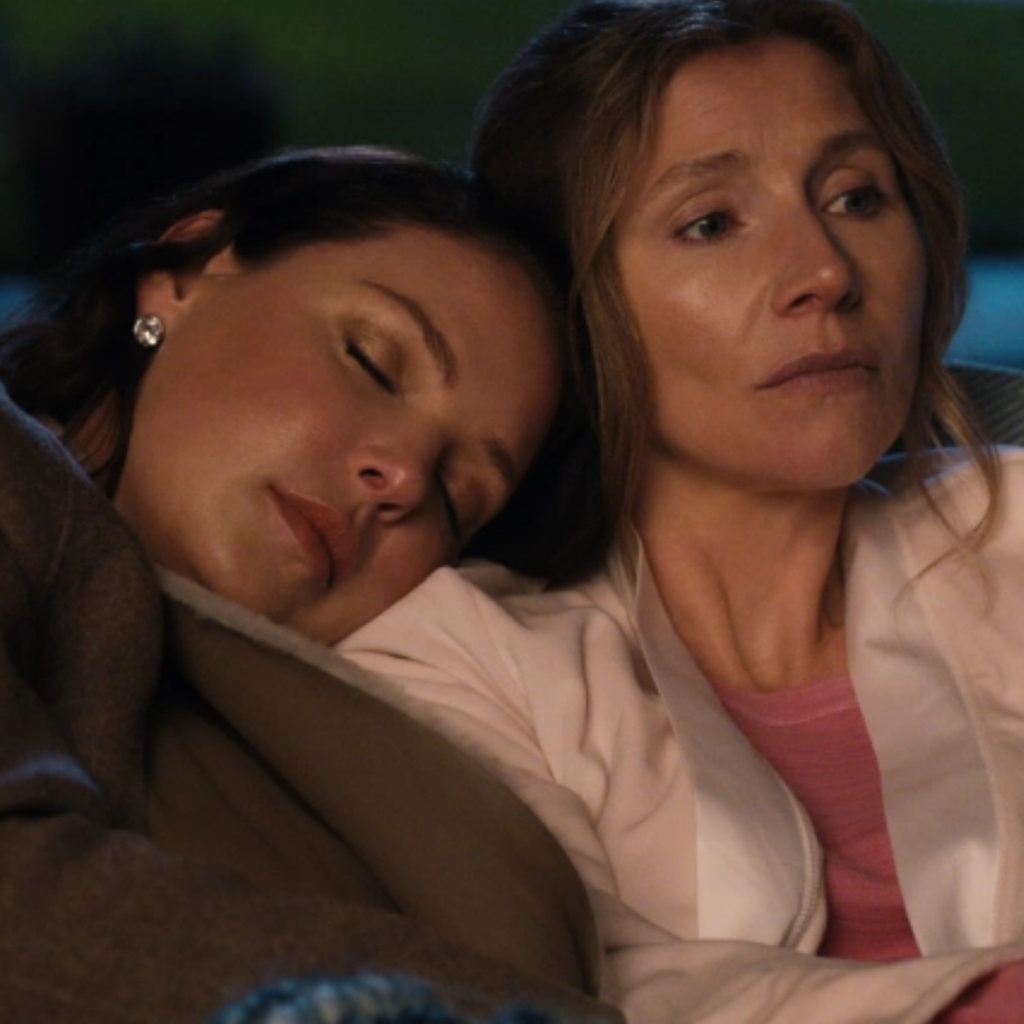Kate, played by Sarah Chalke, and Tully, played by Katherine Heigl, are best friends. And their story is just amazing! Needless to say, I binge-watched it, as I do with all series; and I’m sure we can all agree the weekly wait for an episode is pure torture. Firefly Lane, however, I started on the morning of 3rd February as soon as I got the Netflix notification exclaiming its release and finished later in the evening. I loved the journey I was put on.
The first thought that went through my mind when I started the first episode was how much it reminded me of the series, This is Us. However, as I watched on for a bit longer, the series sure does shift back and forth from present to past, from one character’s story to another, but it is quite different than This Is Us.
The show is set in early 2000s. The time leaps allow for the audience to learn a lot about Kate and Tully’s lives in the seventies, eighties, nineties and present time.
We travel through characters’ memories and past experiences. And through that we learn so much about them as individuals. Tully, at first glance, might seem a bit rough around the edges. She comes across a loner or to be more precise, she upholds this tough exterior image of not needing anyone. But as we get to know her, she as a character develops in front of our eyes and melts like a big giant marshmallow teddy bear. She is in fact a real woman badass! She is goal-oriented, strong-minded, strong-willed, tough, independent and determined never to need a man in her life. She has certain resentment towards her mother yet yearns for her mum’s approval and compliment. She has made her own family – her best friend Kate is her true family. And for her she’d do anything.
However, Tully’s actions on some occasions prove to be rather questionable, like when she sleeps with Kate’s year-long crush! Man, that is heavy. That aside though, she is super supportive of Kate and her rock at all times. The friendship they have is certainly unique and special.
But the beauty of this show, as I find it, is the depth of a character. I love the way Tully is written. By learning all she went through, we connect the dots and realise why she is the way she is; it gives us a painful insight into the damage an abuse makes. It has made her strong, but it has also robbed her of all the trust she had for men and somehow forced her to live a life of a loner – if it weren’t for Kate that is. You should really watch the show to fully appreciate my words. The depth of characters, especially Tully’s is, in my opinion, the true cherry on top of this show.
On the other hand, Kate is super forgiving, understanding and kind. She is so trustworthy that it almost makes her naive. I get the feeling that no matter how much someone hurts her, she’s still very willing to forgive them.
Kate and Tully have a long relationship. In fact, they are so close, they seem to share Kate’s family – e.g., her daughter and Kate’s husband’s loyalty, one could say. Specifically, Kate’s husband could never quite choose between the two, not really. At least it does not seem so. The series shows he had feelings for both of them prior to marrying Kate. He is a loyal co-worker and is loyal to Tully from that perspective, which is an admirable quality everyone looks for in a producer. Namely, Tully is a talk show host, and he is Tully’s producer on the show.
Though women nowadays freely use the word “bitch” with one another (btw – something I really hate no matter the principle of owning hurtful words and turning them powerful – I could never and would never call myself or another woman a bitch as a form of empowerment or reappropriation of this term), I doubt that was the case in the eighties. For instance, there is one scene set in the eighties where Kate and Tully are in a pub and Tully calls Kate a bitch as a form of empowerment. However, owning hurtful words and turning them powerful (e.g. reappropriating and reclaiming of hurtful discourse) is a strategy more widely used a bit later than in the eighties. Hence, I find it hard to believe the two characters, though very enlightened, have, in fact, been this very much enlightened to call themselves “bitch” as a form of empowerment in the eighties. I find this the only less-believable trait in this show.
This show is really something to put on your watchlist if you haven’t done so already. It’s fresh, the characters are multi-layered and deep, the stories are powerful and the friendship among the two is remarkable. It’s a must-see for sure.
